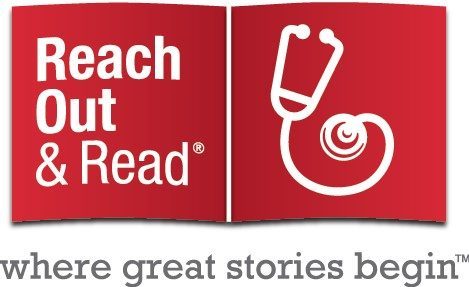Today’s blog is by Emily Bartels, Program Specialist at Reach Out and Read Carolinas.
Reach Out and Read Carolinas and Converse College partnered to form the first ever Social Systems Leadership Internship during the Spring 2017 semester. You might be asking a few questions— What exactly is Social Systems Leadership? What does this have to do with a medically based literacy intervention? And what benefits does an organization gain from investing in collegiate students to teach them about social systems?
With Spartanburg stakeholders modeling collective impact practices among nonprofit, philanthropic, corporate, and public stakeholders, we realized we have the unique opportunity to expose students to the integrated components of an effective early childhood system.
In Spartanburg County, 10 “medical homes” implement the Reach Out and Read intervention to families with children under the age of 5. This translates into over 15,000 well child checkups annually that become opportunities for medical providers to help support all components of health development in children. Dedicated providers help support parents and caregivers as they work to develop the physical, cognitive, and social and emotional dimensions of healthy development. We wanted to share those experiences with the interns in a hope to continue growing and creating more of those moments.
Starting with a group of 4 interns with different majors—psychology, mathematics, deaf education and chemistry—we embarked on a journey to examine the systems in place across Spartanburg County working to give children and families the best chances of success. Through the lens of local Reach Out and Read programs, we delved deep into aspects of successful program implementation. Focused on the areas of research and evaluation, funding, systems thinking and data collection, this internship provided an opportunity to learn what it takes for a program to make an impact in a social systems environment. Interns learned about the social impact environment by working with other services that connect to the pre-school aged child, as well as groups like the Institute of Child Success that focus on research about the effectiveness and functionality of such programs.
One highlight was the funder lunch where the interns interviewed various social program funders in Spartanburg County. Interns were blown away by the amount of collaboration and willingness to put aside individual organization notoriety for the greater goal of program success. Another highpoint was visiting and learning about the Northside Development Project. Leaving impressed with the amount of support and grassroots efforts to improve a community, one intern walked away from that visit knowing that her career had to involve community impact programs within the healthcare setting. From shadowing nurses with the Spartanburg Nurse-Family Partnership Program; to touring innovative programming offered at the Spartanburg County Library; to working directly in the Reach Out and Read clinics, interns walked away with a deeper understanding of the importance of interventions and support for young children.
Elaina Smith, Junior and deaf education major said in her final interview, “I know what to do when the child enters the classroom to help them learn. Until this internship, I had no idea all that goes into getting the child to that point.” I think Elaina’s quote exemplifies something that many of us “in the field” are working hard to accomplish: to wrap services and supports around families with young children so they can help their child be successful and have the tools needed to fulfill their dreams.
So when asking what benefit we gain by investing in this opportunity, we have four future professionals that have a concrete understanding of social impact work and how to be a leader in their community. They will advocate for children and families and the development of systems that will support them. These strong, intelligent young women know that in whatever career field they choose, they will place importance on helping others.

